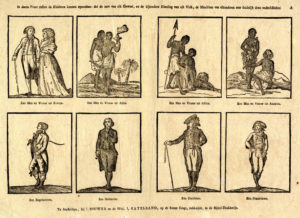This post originally appeared on Thousand Currents’ blog.
Tariro Mzezewa, a New York Times Opinions editor, made an argument this week that I want to refute about Comic Relief’s fundraising video featuring pop singer Ed Sheeran’s meeting with street children in Liberia.
That argument is this: the ends justify the means.
However, Mzezewa does not disagree with the various criticisms leveled against the video, that:
- the images are decontextualized and show a lack of nuance,
- an artificial distinction is created between “us” and them,” and
- the children are rarely allowed to speak for themselves.
Yesterday in NPR Goats and Soda, and the week prior, I was quoted in a Guardian UK article about the same video being nominated for this year’s Radi-Aid “most offensive” campaign award:
It is not surprising,” said Lentfer. “Pity and shame are easy emotional levers to pull. They are proved to bring in the dollars. It’s a transactional way of looking at viewers and readers, to say, ‘I just want your money.’
Mzezewa argues that in the widespread criticism or shaming of the video is harmful. In essence, she writes that we need well-produced videos, featuring celebrities, to raise the money. Here’s my reaction:
1) Reinforcing narrative frames that center whiteness and wealth is dangerous, irresponsible, and unacceptable.

Readers and viewers in the U.S. have a greater expectation than ever for people to speak for themselves. This matters because this is how stereotypes, generalizations, victimization, exploitation, and heroism are exposed, challenged, and healed. Africans and people in the Global South have been calling for the white savior narrative/industrial complex, and bridge characters to be retired for eons.
Communicators’ jobs are to create opportunities for people to connect with universality of the human experience, not the celebrity experience. Yes, people may identify emotionally with Ed Sheeran’s experience. In the hands of a skilled filmmaker (preferably a Liberian), they could have identified with the children directly. A skilled filmmaker can also help harness the power of celebrity in a way that centers people and the issues as they define them.
The world will look very different when we are able to look at it through the eyes of others, rather than only our own lenses.
2) There’s something fundamentally wrong with the equation: more fundraising = less poverty.
The U.S. public is inundated with individualistic, “how you can help/make a difference” stories. Ensuring the public understands the root causes of why those children were sleeping on the beach in Liberia, as well as their and perhaps more importantly their governments’ role in the historic, systemic, and structural realities of global inequality requires international organizations to go beyond traditional notions of charity. (Moreover, do everyday people know about how only a fraction of resources the humanitarian aid system actually gets to grassroots organizations?!) According to the recent Giving USA report, more people than ever gave charitable donations in the US in 2016 (around $390 Billion, the highest ever). Yet 2016 also saw continued racial and economic inequality in the US and world over.
I’m here at Thousand Currents to gather and work with people who are dismantling the structures that perpetuate inequality, racism, marginalization, and injustice. Yes, it takes money do this. Lasting, transformative social change also takes grassroots leadership, community organizing, volunteer hours, committed allies people showing up, pressure on power structures/holders, systems analysis, etc. Before I joined Thousand Currents, I worked with over 300 organizations in east and southern Africa focused on children’s rights. I can tell you that this is what helps kids like J.D.
3) It’s time to stop interacting with audiences in a transactional way.
 After watching Ed Sheeran’s video, people want to immediately “do something.” International NGOs offer a ready-made click to assuage that sadness, pity, guilt, or shame. We have an opportunity to persuade, influence, motivate, and educate. But instead, potential donors are coddled and/or prodded, e.g. read/watch this and give us money, rather than involving them as part of a greater collective effort.
After watching Ed Sheeran’s video, people want to immediately “do something.” International NGOs offer a ready-made click to assuage that sadness, pity, guilt, or shame. We have an opportunity to persuade, influence, motivate, and educate. But instead, potential donors are coddled and/or prodded, e.g. read/watch this and give us money, rather than involving them as part of a greater collective effort.
Thousand Currents operates from the knowledge that more than ever before, globally-engaged citizens are looking for effective ways to affect change in a rapidly-changing world. Yes, our community is also asked to “click,” but more importantly they are invited to reflect on deeply-rooted and connected issues. Our donors are not just wallet holders. They are people who have their own capacity to learn from their experience, and from others, in order to do better next time. Let’s join together to build narratives and share stories from a space of what it means to build thriving communities and families – around the world and in our backyards.
Our 30+ years at Thousand Currents have taught us that grassroots leaders are the innovators, thought leaders, currents of change on all continents. They teach us what it means to lose, mourn, and then organize in new powerful forms to win for food sovereignty, a new economy, and climate justice. They teach us that we must cultivate more joy for the struggle ahead.
That’s why for Thousand Currents fundraising, or in our framework donor organizing, cannot be the be all end all. Our mandate as communicators is to help reimagine the world and support those who are holding the powerful to account. Our mandate is to challenge the individualism and isolation that keeps us separate.
That is, paying attention to the all-important means that will usher in the glorious horizon.
***
Related Posts
10 “big picture” communications questions for the social good sector
Are the jobs of communicators changing in the development sector?
When the protagonist isn’t a white kid
Moving along on the do-gooder journey
How to reframe the #globaldev message: Local organizations telling their own story
Demonstrated: The demand for new narratives in international development communications
The double-edge sword of mass communications: Is stereotyping inevitable?
White supremacy, black liberation, and global development: The conversations we’re not having
5 pulse-checks before clicking ‘publish’ on #globaldev communications


There is a need for both short-term aid and structural change. You can’t ignore the former. For all its shortcomings in terms of alleviating poverty, it is still necessary and good to feed, clothe, and educate. Much as I admire your approach and goals, they are long-term and long-shot and in the meantime, the need is real. Why don’t you do your thing and let these others do what they do, instead of wasting your time and energy criticizing them? Don’t let the perfect be the enemy of the good.
I had not heard of your organization before. It is exactly the kind of approach I would like to support but I would be reluctant to do so if you feel it necessary to continue to condemn others who do things a different way.
I understand that criticism of those “doing good” often makes people uncomfortable, angry even. But I also have learned from my two decades of experience that under the shadow of doing good, much is hidden. I do this work because I want to to make the world a more fair and just place, and that includes speaking truth to power. International organizations have a lot of power and resources to shape the Global North’s idea of how “helping” should occur.
Here’s what I’m asking of Comic Relief and other international NGOs: Consider why portraying Ed Sheeran’s experience of “encountering” poverty in Liberia more important than Liberians’ lived experience.
I am proud that in all of our communications and donor engagement efforts at Thousand Currents, our aim is to stimulate critical thinking, mobilize collective action, and influence policy making. As the director of communications, I am accountable to a global team who are sick and tired of being infuriated by those organizations who continue to use pity to fuel fundraising, denying people’s humanity in the process. We trust that audiences and donors can and DO think beyond the savior mentality to consider the nuance and complexity of the Global South. As translators, bridge builders, and communicators, our responsibility is to start conversations about how to build collective power – rooted in equity & liberation – to care for one another.
It’s time for international organizations to play their part in informing the public about what it actually takes to make transformative, lasting change happen. That includes confronting racist tropes. That includes ensuring our support is behind grassroots leadership.
They know better. Time to do better.
You did not make me feel angry or uncomfortable. I admire your approach and agree that it is necessary and far better than the band-aid approach. However, when people are bleeding, first-aid is needed and you don’t do yourself or your organization (or those who need first-aid) any favors by belittling those who provide first-aid. It makes you seem petty, at best. Are the poor supposed to starve to death while you pursue your lofty goals that could take years to achieve?
Those concerned about poverty and injustice are not as ill-informed as you would believe. It is hardly a secret that structural reform is needed to achieve lasting effects. But for those who do need to learn, you will have much better success if you don’t scold and scorn.
And maybe you could join forces with the first-aid types and provide the full scope of aid. It need not be binary.
These mistakes about NGO communications have been made, over and over…and over, because it brings in dollars, not because it helps.
Showcasing a sense of urgency is a way to create tension and get people to react, preferably with dollars. It makes the viewer/reader feel as if they have to do something – now. There is no time or encouragement to consider root causes or alternatives, particularly those which may require more time or resources.
The urgency is a narrative tool…for your manipulation. People have been starving to death before the aid industry (and it is an industry) arrived on the scene, and unless we change our tune, they’ll continue to do so. Because one individual, alone, cannot change that situation. That is simply not possible, and to perpetuate the idea that we can – at this point in history – is irresponsible and misguided at best.
Indeed, none of this is binary. This is not an ideological argument for me. I have worked closely with the “first-aid types” throughout my career. What I can tell you is that if a humanitarian relief organization or team is always reacting, it is very difficult to learn from mistakes or accommodate new ideas.
My purpose in writing this is to ensure room for growth and the opportunity to do better next time. Equating the raising of difficult issues with being petty, impolite, rude, or out of line is not only unfair to me, it is a way of diverting us from the issues actually causing the problem.
If people feel scolded or scorned by fair criticism, then I say…maybe they need to be scolded.
I agree completely that fundraising should be able to happen without denying people’s humanity in the process. It is time for the white savior narrative to be retired. If fundraising campaigns are centered around ‘poverty porn’ that dehumanizes the very individuals that the campaign is meant to be helping, then I believe the main goal is then to make those who are donating feel better about themselves rather than actually providing a solution. This is problematic. The focus of involving those who want to “do something” and incorporate them as part of a greater collective effort, versus just interacting with audiences in a transactional way is very important. The artificial distinction created between “us” and “them” in videos such as the one featuring Ed Sheeran must be held accountable for the damaging narratives they reinforce.